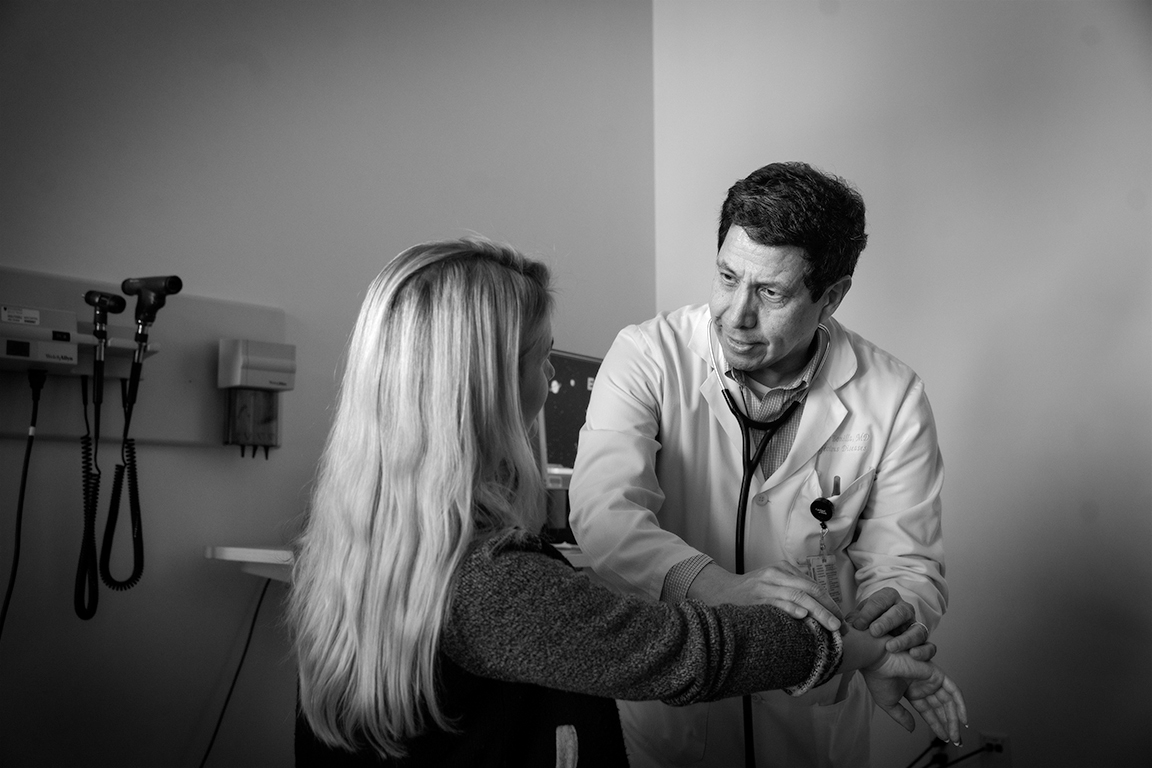
Hector Bonilla
Columbia
Physician specializing in Chronic Fatigue Syndrome
My name is Hector Bonilla. I am from Cali, Colombia, South America. I went from Colombia to University of Michigan Medical School where I did my residency. I was very interested in HIV and decided to go to LSU, where we treated 2,000 persons with HIV at the clinic. It was a very interesting experience because it was at the time that HIV was at its infancy; there were only a few medications. And patients were dying with many infections. It was kind of devastating for us because as a physician, you try to heal people and you feel hopeless, there was nothing you can do for them.
I was introduced to Hepatitis C by Bill Cassidy, a Senator from Louisiana, who was also a physician treating Hepatitis C and I got interested in both viruses; Hepatitis C virus and HIV virus.
Something kind of intrigued me with the Hepatitis virus because those patients, their main complaint was feeling tired and fatigued. These patients were taking interferon as a therapy and interferon is a cytokine. Every time the patients take interferon, they develop symptoms that mimic chronic fatigue symptoms; very tired, brain fog, unable to focus and have gastro intestinal issues, nausea, vomiting and diarrhea. As soon as the drug levels go down, the patients start feeling better and we give them the injection and the symptoms return.
I started seeing the correlation between chronic fatigue and Hepatitis C. One, the main symptom was fatigue, and now we know the virus can affect mitochondria function. And two, we know the cytokines are the drivers of the symptoms in chronic fatigue patients and the interferon demonstrated if you give a cytokine to a normal patient, they can develop chronic fatigue-like symptoms.
Three years ago I interviewed here at Stanford and I started working in chronic fatigue.
I’m committed to this disease and I think we’re making some progress. We are very excited to see the things we are able to do with the patients, how people are getting better, how we’re able to identify this disease as a real disease. And we try to work on how we can find real diagnostics for the non-believers.
I came here with a J1 Visa, and then I had to get a waiver to get permanent status and eventually I became a citizen.
At the beginning, it was difficult because I remember once I was with my J1 visa, I was in the hospital doing my residency, I got a letter from immigration to tell me I had to leave the country in ten days otherwise I was going to be deported.
Somebody told me go and just change your visa in Toronto. I was in Michigan so I went to Toronto and they told me in the American embassy I had to go back to Colombia. I had to go from Toronto to Colombia. I went to the consulate embassy in Colombia and they gave me a hard time. It doesn’t matter I had the papers in order, they told me no, I had to bring another paper. I was close to giving up. I have a friend of mine who knew the people in the embassy so they helped me.
So I brought all the papers, I went for the interview, they checked all my credentials, they told me come back tomorrow for your visa. I went for my visa and they couldn’t find my papers. And they asked me for the papers, I don’t have the papers, you have the papers. I had the copies. They said, “No, we don’t want copies, we want the originals.” “You have the originals. I don’t have the originals.”
Finally, the officer from the embassy went and checked and found my files, he stamped my visa and he told me, “The next time you come back here I’m going to give you a hard time,” to renew my visa. Luckily, I didn’t have to go back. He probably would not have renewed my visa. Even though he knew I was a doctor, he did not care.
Under the current political situation, it is much more difficult to get a visa. My feeling is that the immigration officers overseas are very arrogant and they look at any immigrant as inferior, as trash. They don’t look at them as human beings able to give something to this country.
I think it’s kind of the arrogant attitude. Sometimes, I feel like how the German treated the Jewish population, the same way. Looking at the immigrant like something negative for the country, not something like a contribution for the country. This country was built based on immigrants and is still being built by immigrants.
We are a country of immigrants and a country that has respected human values. But immigrants have no value for Trump. When he went to see the migrants in Texas, the immigrants from El Salvador, they were being detained in very difficult conditions and they had no access to soap, toothpaste so there was no way to maintain hygiene and the smell was bad. Instead of feeling compassion about it, he said, “We need to build a wall here.” He had no interest in trying to understand why people come here. If people felt safe in their countries and had opportunities, they would not risk their lives to come here. If we help develop these countries, we are not going to have mass migrations.
